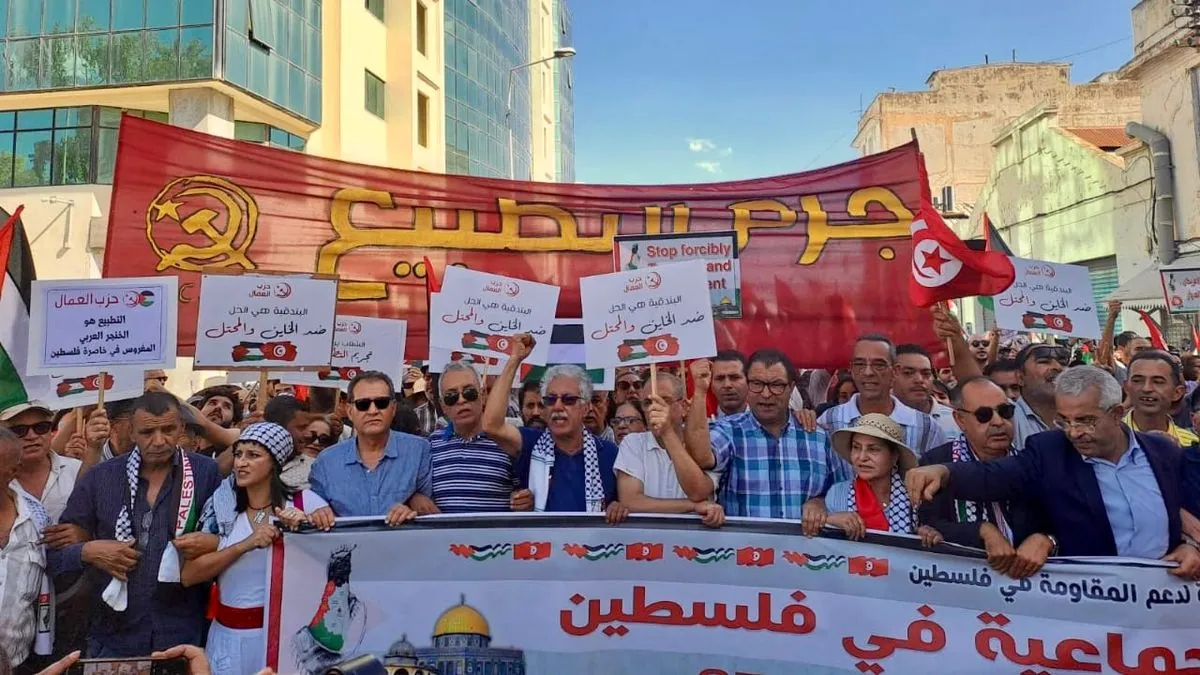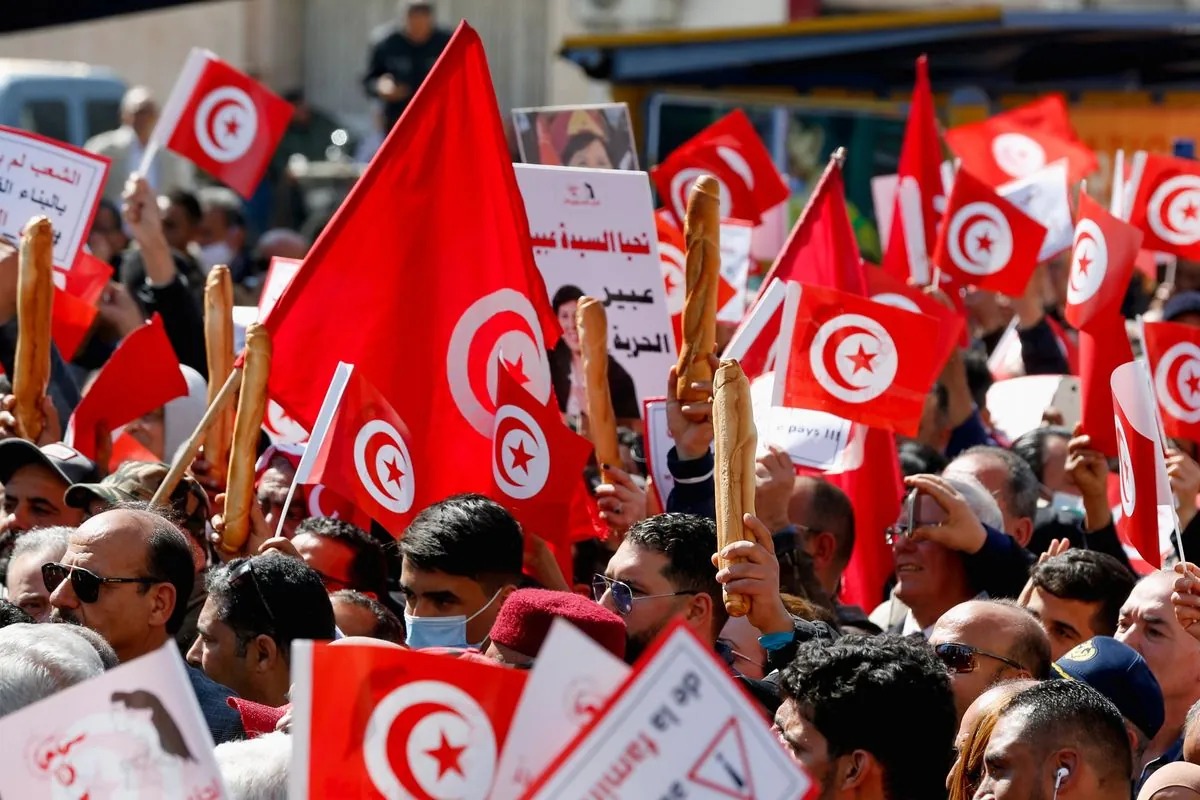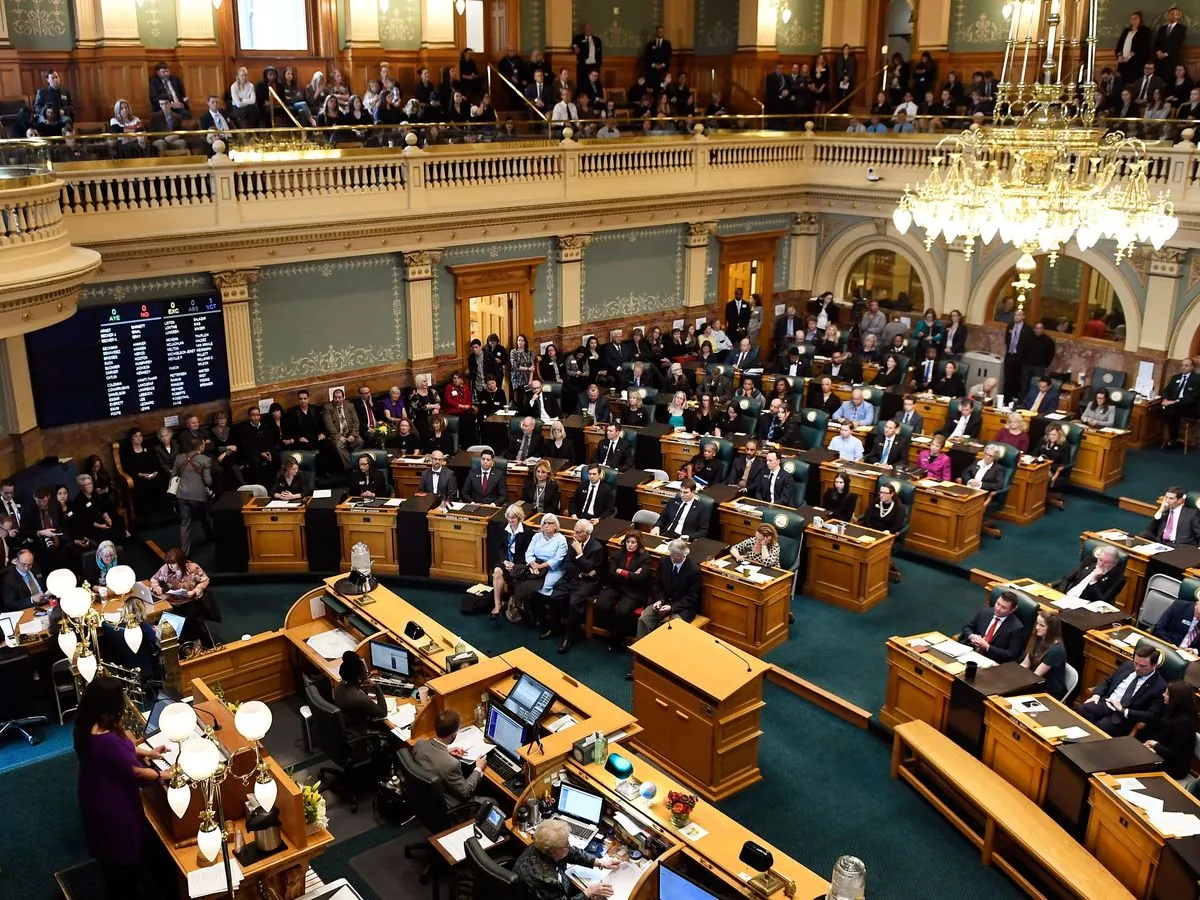Tunisians Rally Against Controversial Presidential Election
Hundreds protest in Tunis against upcoming vote, citing unfair candidate disqualification and concerns over democratic freedoms. Opposition decries election as a "farce" amid rising political tensions.

On October 4, 2024, Tunisia witnessed a significant demonstration as hundreds of citizens took to the streets of the capital, Tunis, to voice their opposition to the upcoming presidential election. The protest, occurring just two days before the scheduled vote, highlighted growing concerns about the fairness and legitimacy of the electoral process.
Demonstrators gathered on Habib Bourguiba Avenue, a historically significant location that played a crucial role in the 2011 protests that led to the ousting of former President Zine El Abidine Ben Ali. This event, known as the Jasmine Revolution, marked the beginning of the Arab Spring and set Tunisia on a path towards democratic reforms.

Protesters carried banners with messages such as "Farce elections" and "Freedoms, not a lifelong presidency," expressing their dissatisfaction with the current political climate. The main point of contention is the disqualification of several prominent candidates by an electoral commission appointed by President Kais Saied, leaving only two rivals in the race.
The opposition's frustration intensified following the imprisonment of presidential candidate Ayachi Zammel, who received three prison sentences totaling 14 years for allegedly forging electoral documents. This development, coupled with the stripping of authority from an independent court to adjudicate election disputes, has fueled fears of democratic backsliding.
"Tunisians are not accustomed to such an election. In 2011, 2014 and 2019 they expressed their opinions freely, but this election does not allow them the right to choose their destiny"
The current situation stands in stark contrast to Tunisia's recent history of democratic progress. Since gaining independence from France in 1956, the country has experienced significant political transformations. The 2011 revolution ushered in a period of increased freedoms and democratic elections, with citizens freely expressing their opinions in the 2011, 2014, and 2019 polls.
However, recent years have seen a shift in the political landscape. Kais Saied, elected as a political outsider in 2019, has taken steps to consolidate power. In July 2021, he suspended parliament and dismissed the prime minister, and in 2022, a new constitution granting more power to the president was approved.
These developments have occurred against a backdrop of economic challenges, with Tunisia facing high inflation and unemployment rates. The country, known for its diverse landscape including Mediterranean beaches and parts of the Sahara Desert, has traditionally relied on sectors such as tourism, textiles, and agriculture for economic growth.
As Tunisia approaches this contentious election, the international community watches closely. The outcome of this vote may have significant implications for the future of democracy in the country that was once hailed as a success story of the Arab Spring.


































